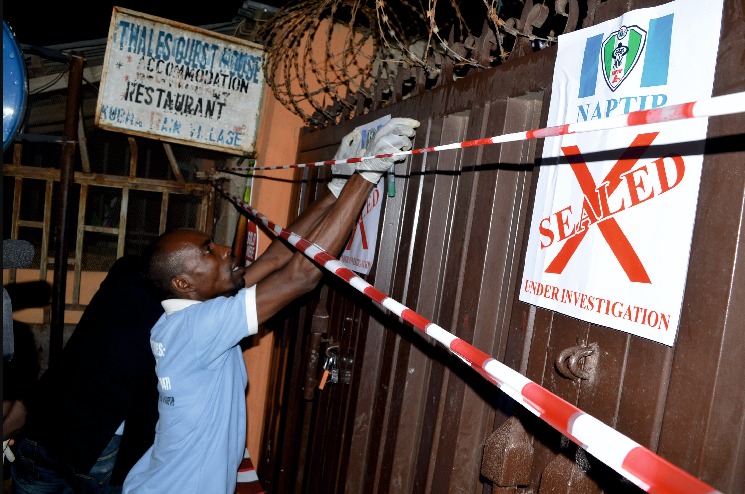The National Agency for the Prohibition of Trafficking in Person (NAPTIP) said it rescued at least 100 victims of human trafficking in the South-East between January and June.
The Enugu Zonal Commander of NAPTIP, Mrs Nneka Ajie, said this on Friday in Enugu during the celebration of the 2021 World Day Against Human Trafficking.
Ajie said the victims, who were mostly children, were exposed to sexual exploitation, child labour, violence and baby harvesting, amongst other crimes.
She also said that some of the rescued victims had been reunited with their families.
“If you go to our shelter to see some of the rescued victims, you will commend us for what we are doing,” she said.
Ajie, however, said the issue of reuniting the victims with their families posed a challenge to NAPTIP, given that the agency had a duty to empower them.
“We are very limited in the area of empowerment and that is why we seek partnership to execute our mandate. We cannot do it alone,” she said.
She also said that no fewer than 50 suspected human traffickers were arrested within the same period, adding that some were being prosecuted.
Ajie described the incidences of human trafficking as endemic in the zone.
According to him, the zone has been recognised as the place of origin, transit and destination for human traffickers.“We mostly have the preponderance of sexual exploitation, followed closely by baby harvesting offenses and labour exploitation,” she said.
The NAPTIP boss said that July 30 was set aside to commemorate the victim’s rehabilitation and reintegration into society.
READ ALSO: Kaduna Government files fresh terrorism, treason charges against El-Zakzaky
Ajie also said the celebration provides an opportunity to highlight the ills of human trafficking and deliberate on ways to arrest the trend.
Also, the South-East Regional Director of NAPTIP, Mr Nduka Nwanwenne, said the Federal Government had put enough policies in place to curb the menace.
Nwanwenne cited the National Policy for the Protection and Assistance of the Victims of Human Trafficking, which came into force in 2008, as one of such policies.
“From then, there have been other policies that have been developed and if not for these policies, incidences of human trafficking would have been more serious.














